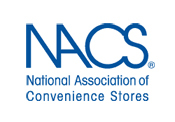NACS Testifies at Renewable Fuels Standard Hearing
 |
Washington Report: NACS Testifies at Renewable Fuels Standard Hearing A two-day hearing in a subcommittee of the House Energy and Commerce Committee is putting the RFS in the hot seat, where panelists are sharing their insights on whether the mandate should be repealed or restructured.
WASHINGTON July 23, 2013; NACSonline reported that today, the U.S. House Energy and Commerce Committee’s Subcommittee on Energy and Power kicks off its hearing on the Renewable Fuels Standard (RFS). Joe Petrowski, CEO of The Cumberland Gulf Group, is speaking before the committee today on behalf of NACS and SIGMA.
Petrowski will summarize the industry’s position:
1.NACS and SIGMA do not support the repeal of the RFS at this time. The groups do, however, support the RFS being administered in a manner that reflects the realities of the market as it actually exists today, rather than how Congress in 2007 projected it would.
2.The motor fuels market in the United States is on the cusp of hitting the so-called “blend wall,” when the RFS’s annual volume obligations exceed the volume of renewable fuel the market can reasonably absorb. This could cause gasoline and diesel prices to increase, generating severe economic harm throughout the United States.
3.The Environmental Protection Agency possesses and should exercise its statutory waiver authority to adjust volume obligations to avoid hitting the blend wall.
4.It is incumbent on Congress to determine whether the Agency will use its waiver authority; if it will not, legislation may be necessary.
“America’s love affair with the automobile is not going away. Neither is the need for transportation fuels that underpin the economy and create jobs,” said Petrowski in prepared comments, adding that his company’s objective is to sell whatever fuels the customer demands.
“As new fuels enter the market, we want to be able to sell them lawfully and with minimal volatility and risk. While agnostic on fuel we do have a bias: We believe it is best for the American consumer and our industrial position in the world marketplace to have reasonably low and stable priced energy.”
He continues: “This can best be accomplished by focusing on developing diverse fuel sources from at the least secure, friendly regions and at best domestic sources for optimal results. … While I support the spirit and intent of the RFS, there are problems in the program that can be remedied without undermining the principles on which the program is premised — diversifying the fuel supply, increasing the overall fuel supply, encouraging domestic fuel production, and lowering fuel costs for American consumers.”
Petrowski notes that higher CAFE standards, combined with a struggling economy, have brought gasoline consumption to a standstill. He also cites slow growth in flex-fuel vehicles.
“Without regard to these unanticipated market realities, the required RFS volume targets continue to increase year after year. As a practical matter, these targets can only be met if more ethanol is blended into gasoline. The market is not able to do this at the present time, largely because … retailers fear that selling gasoline blends greater than 10% ethanol (so-called E10) will increase their liability exposure. There is simply insufficient consumer demand for such fuels to justify the risk. Once the RFS’s volume obligations exceed the volume of renewable fuel the market can absorb, the market will have hit the so-called blend wall.”
In closing, he notes that if Congress is serious about ensuring new and alternative fuels can enter the marketplace, then it must do so by addressing the blend wall. “I urge you to press EPA officials to confirm that their authority to waive volume obligations under the RFS encompasses efforts to avoid the blend wall.”
Today’s hearing follows a June 26 subcommittee hearing that reviewed government implementation of the RFS and also comes on the heels of the committee’s release of a series of bipartisan white papers examining a range of emerging concerns with the current statute. Each of the five papers solicited input from interested parties and the committee has received an outpouring of responses.
Witnesses from nearly every stakeholder affected by the RFS, including fuel users, developers and representatives from the agricultural and environmental communities, are offering their feedback on the future of the RFS mandate. A list of the groups participating is available online here and testimony will be available prior to the hearing.


